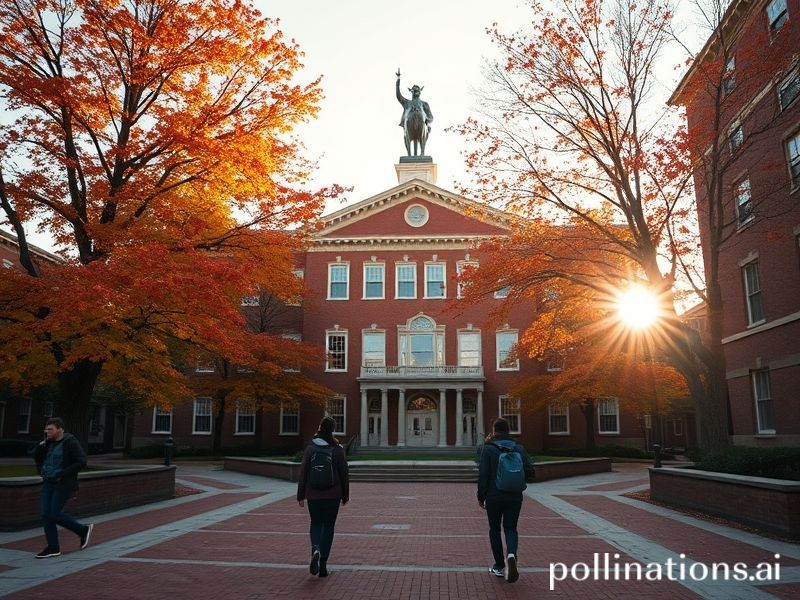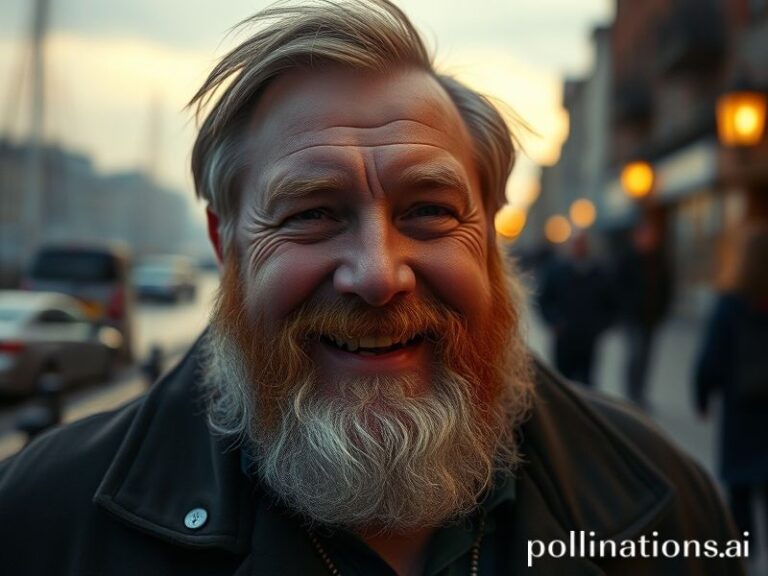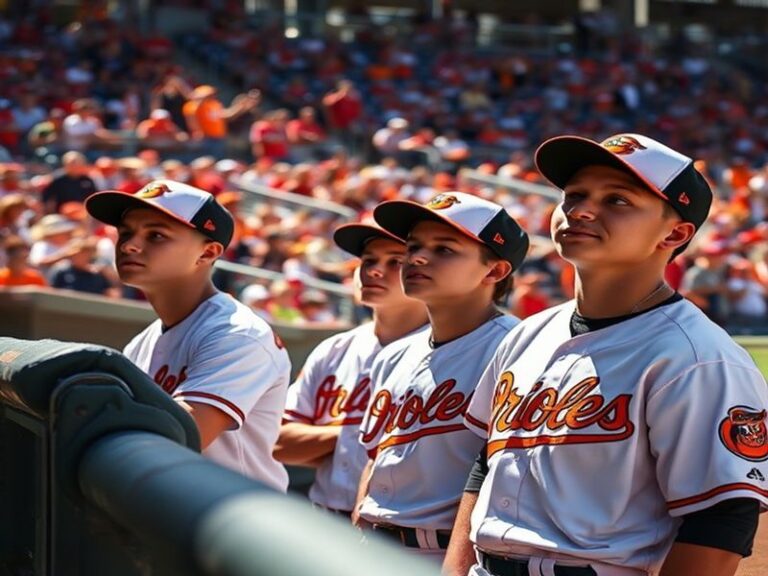Tufts University: Where Ivy-League Optimism Meets Global Dread
Somewhere between the Charles River and the apocalypse, Tufts University sits like an ivy-clad bunker for the globally anxious. From a distance, it looks like another postcard of New England autumn, but zoom in and you’ll see a campus where future diplomats, vaccine engineers, and hedge-fund ethicists rehearse for a planet that may not bother with curtain calls.
Founded in 1852—back when the United States still thought “imperialism” was a French hobby—Tufts has spent 170-odd years cultivating the kind of polymath who can broker peace on Monday and still make it to a venture-capital brunch on Tuesday. Its Fletcher School of Law and Diplomacy, the oldest in the U.S., has been exporting the concept of “soft power” since 1933, an era when soft power mostly meant not invading Belgium that week. Today, Fletcher alumni lounge in 160-odd capitols, ready to remind leaders that trade wars rarely end in cake.
The university’s global footprint is less a footprint than a carbon-heavy stomp. The Cummings School of Veterinary Medicine runs rabies-eradication programs from Chad to Cambodia, proving that nothing says “American soft power” quite like tranquilizing stray dogs in multiple languages. Meanwhile, the School of Medicine’s Center for Global Public Health is busy modeling pandemics so convincingly that conspiracy theorists have accused it of writing the script. (“You call it Event 201, we call it Tuesday,” one epidemiologist quipped over Zoom, 5G reception permitting.)
Yet Tufts’ most subversive export may be its students’ sense of moral whiplash. One minute they’re debating microfinance in a seminar titled “Capitalism and Its Discontents,” the next they’re interning at BlackRock, wondering if the discontent can be bundled into an ESG ETF. The university’s Experimental College lets undergraduates teach courses like “Queering the Climate Apocalypse,” presumably because the planet wasn’t confused enough already.
International students—roughly one in seven Jumbos—arrive clutching acceptance letters like golden tickets out of whichever dystopia they currently call home. They land in Medford/Somerville, discover that “winter” is less postcard and more endurance sport, and promptly found cultural clubs whose WhatsApp groups become informal refugee networks. The Brazilian Society’s churrasco fundraiser doubles as a hedge against currency collapse; the Turkish Students Association’s baklava sale now prices in both dollars and existential dread.
The university’s research labs, generously salted with Pentagon grants, churn out innovations that range from life-saving to life-ending depending on the PowerPoint deck. A new drone swarm algorithm developed at Tufts’ Human-Robot Interaction Lab promises humanitarian supply drops in disaster zones—or, as one defense contractor noted, “precision loitering.” When asked how they sleep at night, researchers reply that Cambridge rents require dual-use funding, thank you very much.
Even the campus architecture is geopolitically bipolar. The neo-Georgian brick quad whispers “colonial nostalgia,” while the towering, Brutalist Tisch Library screams “Cold War bunker chic.” In between, the Science and Engineering Complex rises like a glass-and-steel confession: yes, we know how this ends, but look at our LEED certification.
As climate deadlines whoosh past like missed commuter trains, Tufts has pledged carbon neutrality by 2050, a date chosen via the same actuarial tables that suggest most donors will have safely transitioned to legacy-naming opportunities by then. The campus composts, solar-farms, and virtue-signals with the best of them, all while quietly expanding satellite campuses in Talloires, France—because if the sea levels rise, someone might as well have decent wine.
In the end, Tufts embodies the grand, tragicomic bargain of elite American education: it equips brilliant minds to solve the very problems its alumni’s stock portfolios may be quietly underwriting. If that sounds cynical, remember the university motto: Pax et Lux—Peace and Light—an optimistic pairing in an age where both are increasingly paywalled. Yet for every graduating class sent into the geopolitical thunderdome, a handful actually broker ceasefires, cure diseases, or at least write devastatingly effective tweets. And in a world tilting toward bonfire, that may be as close to hope as we’re contractually allowed.







